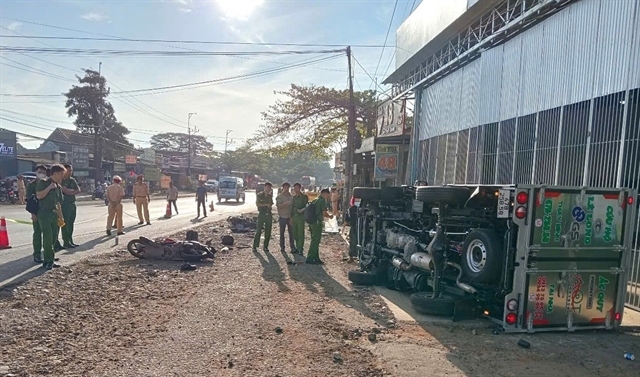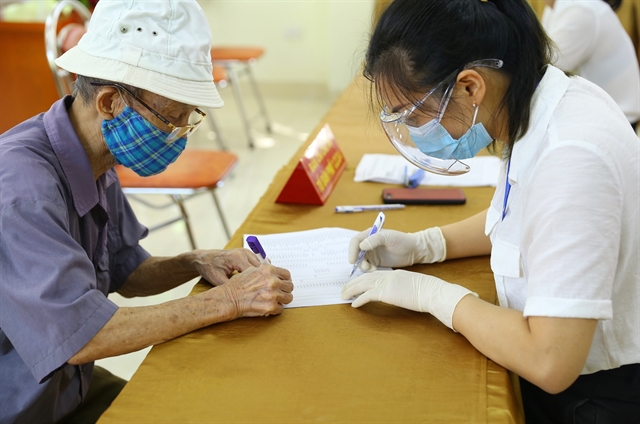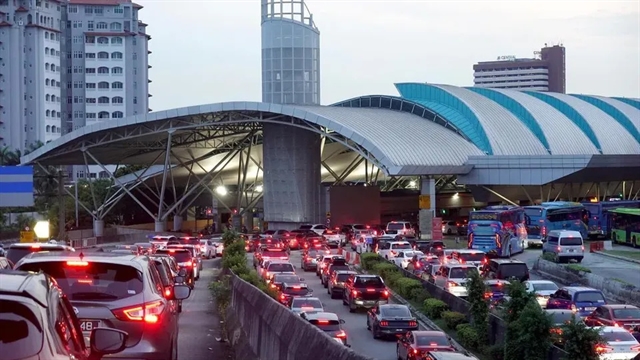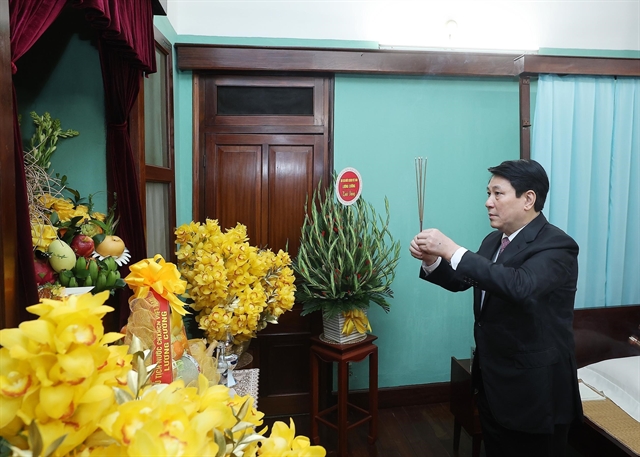 Society
Society


|
| A man in Hà Đông District works with local authority to receive cash support for people affected by COVID-19. VNA/VNS Photo Hoàng Hiếu |
HÀ NỘI — Despite progress in tackling multiple challenges for different vulnerable groups, Việt Nam’s social assistance system faces challenges that have affected the country’s ability to support vulnerable groups affected by the COVID-19 pandemic, according to a recent report by the World Bank.
The report “The Distributional Impact of COVID-19 Fiscal Policies on Households with Emphasis on Đà Nẵng City” was released by the WB last week.
It examined the national social assistance system and the distributional and efficiency issues of the fiscal policies in response to COVID-19 in Việt Nam.
In 2020, the government responded swiftly with several resolutions to support people affected by the COVID-19 pandemic. However, the report said, the programmes are “fragmented” and there is no backbone social assistance programme to provide strategic coherence.
It also noted the weak delivery system which relies on manual and time-consuming registration, enrolment and payment procedures, which are done mostly in cash.
The report pointed out that the country’s ability to respond to crises is limited by its large informal workforce. In 2019, only 26.5 per cent of the labour force was covered by social insurance, and much of the rest of the workforce is outside the social protection system and so is difficult to help in case of an emergency, it read.
Việt Nam’s assistance was of shorter duration and its spending on COVID-19 social assistance was less than some countries in the region. While many countries in the region including Cambodia, Indonesia, Malaysia, Mongolia, the Philippines, and Thailand have extended cash transfers into 2021, Việt Nam’s first package lasted between April and June 2020.
Việt Nam’s total spending on social assistance during the pandemic was 0.86 per cent of GDP, lower than Mongolia’s 4.2 per cent, Thailand’s 3 per cent, and the Philippines’ 2.1 per cent.
Following the first support package in April 2020 that was worth VNĐ62 trillion, the Government issued the second support packages in July 2021 under Resolution 68/ NQ-CP.
The design of the second package has addressed some challenges faced by the first package in regard to adding new beneficiaries, including pregnant women, women with children, formal and informal workers working in a number of occupations, according to the report.
The second package has improved in terms of further decentralisation in targeting as local authorities decide on criteria for identifying their eligible beneficiaries and mobilise local budgets to cover the beneficiaries.
However, challenges in the design and implementation of this package still remain, especially targeting new beneficiaries and budget constraints in poor provinces, it said.
Recommendations
The World Bank recommended Việt Nam extends the duration of support to tackle the lingering COVID-19 effects, and increase the amount of benefits to those in need.
The country should also ensure timely and effective delivery of assistance in the immediate aftermath of a large shock, by simplifying targeting criteria and eligibility conditions to ensure most affected people can obtain assistance quickly and effectively, the report said.
It noted that this recommendation is particularly relevant to informal workers who were not identified or registered in existing social assistance databases and therefore are not easily traceable.
It is also important to improve the intake and delivery system as well as enhance delivery of social assistance benefits by digitalising the payment mechanisms, the report added.
In the short term, Việt Nam should leverage technology to facilitate self-registration/online registration to identify informal workers for assistance, according to the report.
In the longer term, the country need to establish a single social registry system to act as a base for a more robust and integrated social protection system. The country could consider using an integrated social registry as the foundation of an integrated social protection delivery network, said the report. — VNS




